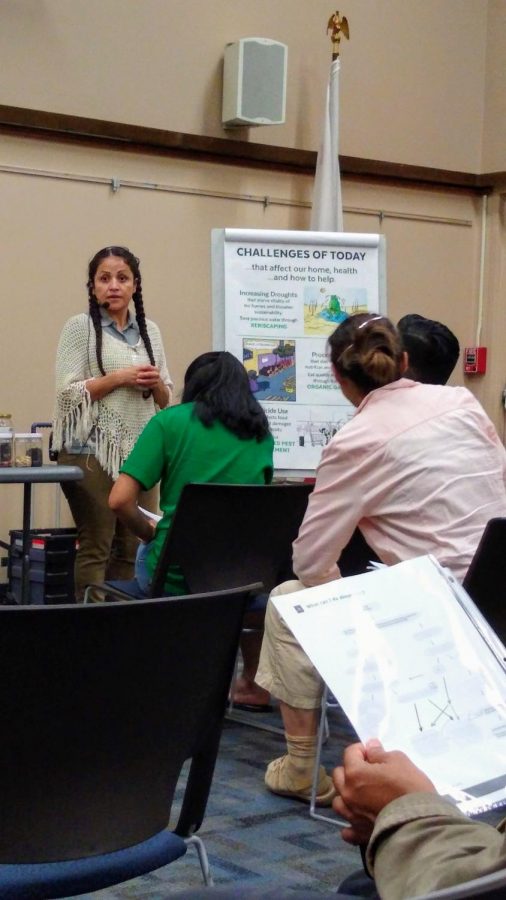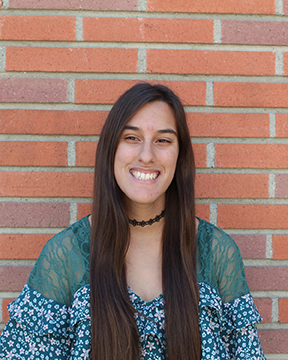The Norwalk Public Library held an event called Smart Advanced Gardening Workshop on Sept. 28 to help Norwalk residents with gardening and to help preserve water.
It was presented by Mireya Arizmendi de Haddad, who is the education manager of the Edible Teaching Garden and Culinary Arts Program. She also mentioned that this was something she does in her past time.
There were three topics that were discussed in the workshop. There were drought-tolerant landscaping, integrated-pest management and organic and edible gardening.
The first half of the workshop was about soil and how it is used in different ways for plants. One of the topics was about composting, which basically means nature’s way of recycling.
The benefits of composting can include saving money and recycling organic matter.
Another topic was that there are four components to start composting. They are green materials, which are high in nitrogen, that provide proteins for the new organisms, carbon nitrogen underground, water, and oxygen.
“This is important because it can help save the environment and help me treat my plants better,” Veronica Grorgeti, 42, said.
Haddad also talked about organic gardening was also presented and said to be less toxic to humans, animals, and the environment. This reduces exposure to chemical fertilizers, pesticides, and herbicides that can cause damage.
The damages include contaminated soil and groundwater, damaged watersheds, beneficial insects and the natural ecosystem that could be disrupted.
There was also a brief discussion, by Haddad, on the many challenges gardeners face. There is severe drought, processed food, and pesticide use.
The one that was most discussed was drought and how it could be avoided when gardening.
Different ways were presented to help gardens that required less water, such as, selecting the right plants, collect rainwater, use mulch and plan irrigation.
There were also Bioswales that are a means to filter or slow down stormwater runoff. They are trenches that are dug in the landscape that is filled with rocks and sand. This meant to retain and filter groundwater.
Another idea included using mulch, which conserves water, inhibits weed growth and cools soil in the summer.
Haddad explained that pests are harmful to gardens, but there are some that actually help with plant growth, such as, ladybugs and praying mantis.
Using clean gardening tools and removing diseased plants encourages fungi and bacteria which could also be beneficial.
“It informed me about pests and irrigation,” Maria Contreas, 50, said.
Haddad showed many different types of soils and diagrams of how each soil should be handled. There were three soils types– sandy, silt and clay.
Sandy soil has over 40 percent of the ideal composition in a garden, silt also has 40 percent and clay has over 20 percent.
There were also books on home gardening and how to plant various flowers, fruits and vegetables that could also be purchased. They were sold at a cheap price since they were mostly used books.
The workshop was made for people who garden and for them to learn more about how they could help maintain water usage.










